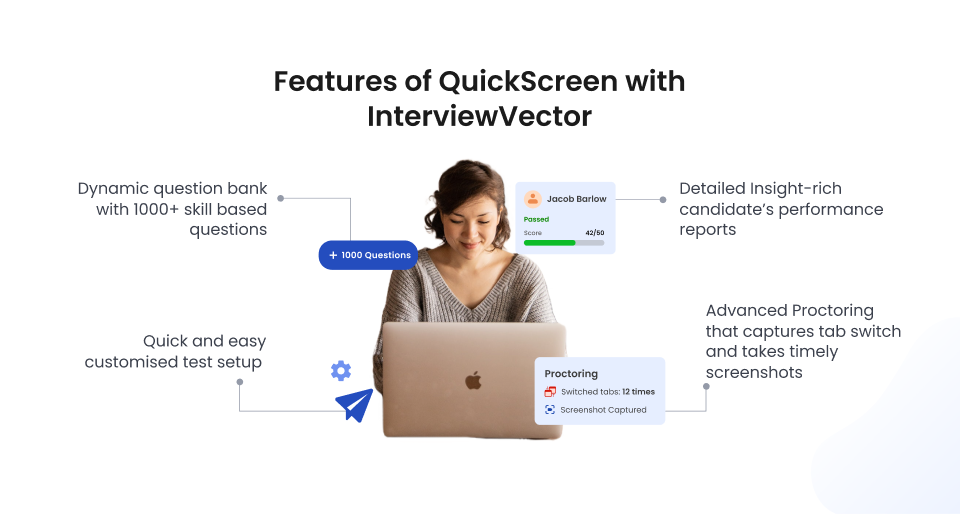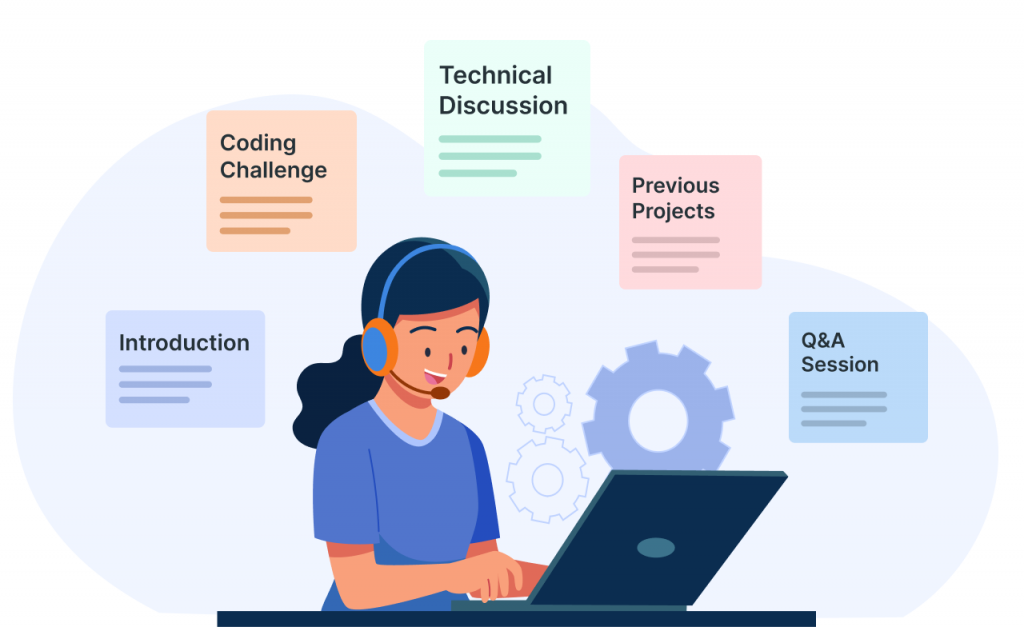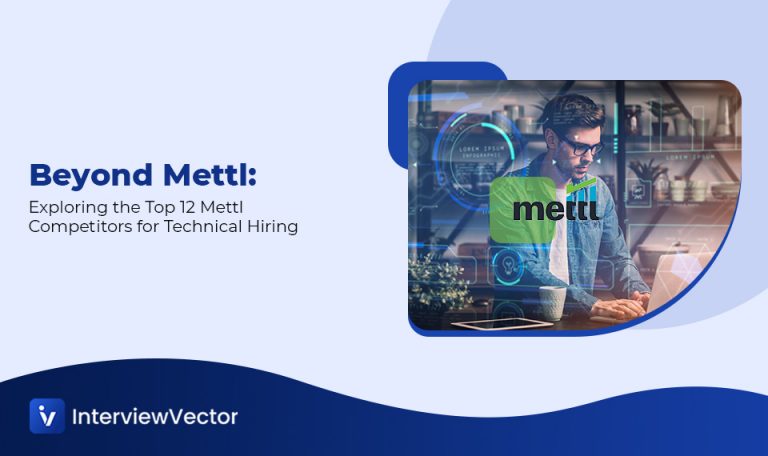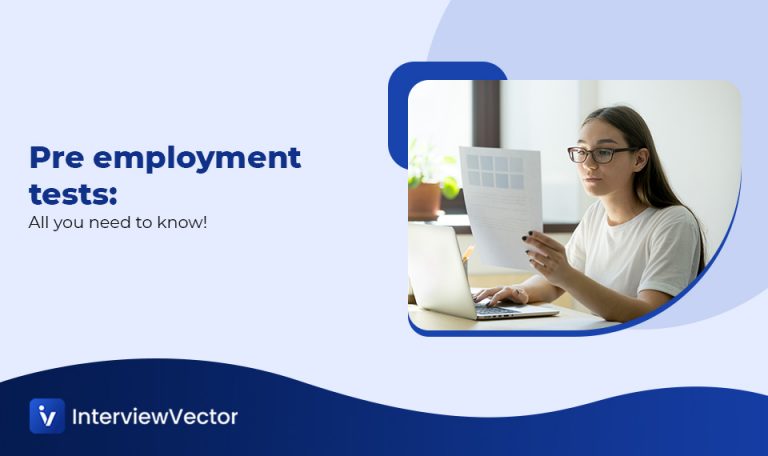Introduction
Finding the right talent in this competitive market is like finding a needle in the haystack. Identifying the best talent goes beyond just scanning resumes; it involves analysing how candidates will solve real-life problems and their coding abilities. This is where coding interviews play a vital role.
The coding interview experience creates stress for candidates who must face uncertain or unorganized interview processes. Candidates who receive insufficient preparation experience decreased confidence levels and may end up in unsuitable employment matches.
In this blog, we aim to bridge the gap between simply conducting coding interviews and doing so effectively. This blog offers tested methods alongside practical methods and concrete examples to help interviewers and candidates execute the process effectively. The information provided in this guide serves as an essential tool that helps candidates and interviewers achieve more promising results.
Importance of Coding Interviews
For years, there has been a constant debate going on about whether coding interviews are useful or not. Do they just add additional pressure on the candidate or have real benefits?
A LinkedIn post by Michael Tu (Senior Staff Software Engineer at Databricks, Ex-Google) offered a balanced perspective on this issue. He insists that any interview style can be beneficial if two conditions are met:
- The format must be well conveyed to the candidate in advance.
- The expectations must be suitable for the job and transparent.
When these requirements are met, the interview process provides fair competition, allowing all candidates to prepare adequately. While candidates with specific skills and experiences may have an edge, those who initially lag are given an equal opportunity to catch up. This method not only ensures impartiality but also improves the overall effectiveness of coding interviews in identifying the top candidates for the position.
Coding interviews help interviewers gain a better understanding of candidates’ problem-solving strategies and innovative thinking. These live coding interviews push candidates to think critically and illustrate their thought processes, which is essential for professions that require creative solutions. This skill is especially useful in tech companies and fast-paced situations where quick thinking and agility are required.
Coding interviews are constructed to bring to light candidates who can think like problem solvers, solve complicated problems quickly, and effectively communicate their solutions. Companies that incorporate coding interviews into their hiring processes can ensure that they are hiring someone who is not only technically correct but also capable of contributing to the company’s growth and success.
How to Conduct Coding Interviews
Conducting a coding interview is an array of tasks that involves careful organization, clear communication, and the right tools to provide a reliable evaluation of a candidate’s skills. Here’s a step-by-step strategy for conducting an effective code interview online.
Define the Interview Expectations
Before the interview, it’s crucial to visualise the specific skills and qualities you are looking for in a candidate.
Describe in detail what the role would look like and the scale on which the interview would be measured. This could include certain programming languages, problem-solving abilities, and familiarity with specific tools or frameworks.
Choosing the Right Platform
There are several tools available on the market that you can customize to your own needs. Some of the tools are LeetCode, HackerRank, InterviewVector, and many more.
InterviewVector provides a variety of capacities targeted for specific intents. InterviewVector’s QuickScreen is effective in expediting the interview process. It offers a user-friendly interface for both interviewers and candidates, with advanced proctoring that captures tab switches and takes timely screenshots to maintain the fairness of the assessment.

Structure of a Coding Interview
A structured interview format establishes consistency and fairness. Here’s a sample structure:
- Introduction: It should include a brief introduction about the company, leading to the structure of the code interview online.
- Coding Challenge: Use InterviewVector’s QuickScreen to present a coding problem relevant to the job. This tool allows candidates to code on the platform, which captures timely screenshots and records any tab switch during the assessment.
- Technical Discussion: Ask the candidate to share their thought process and choices while approaching a specific problem. This will give a deeper understanding of the candidate’s communication skills and approach to a problem.
- Previous Projects: Talk about the previous project that the candidate has worked on and evaluate the passion with which they talk about the project.
- Q&A Session: Encourage candidates to ask questions about the role, company, and working environment.

A Candidate’s Guide to Preparing for Coding Interviews
Coding interviews present a challenging opportunity for candidates to transform into a platform for success by preparing properly. Follow these steps to prepare effectively according to the following guide:
Understand the Interview Format: Research the company’s interview procedures to understand their format. The interview process includes three different types of assessment activities such as on-the-spot coding, home-based work and algorithm problem-solving. Strategic planning becomes possible when you understand the interview structure in advance.
Master the Basics: You must develop robust knowledge of basic concepts such as arrays and linked lists and trees together with sorting techniques and searching and dynamic programming algorithms.
Practice Coding Problems: Solve regular coding problems through LeetCode HackerRank and CodeSignal platforms. Your focus should be understanding three important patterns including two-pointer techniques, sliding windows and graph traversals.
Time Yourself: Practice sessions should have timed durations to replicate the actual interview duration. The practice will enable you to handle your time better when you face the interview.
Communicate Clearly: The key to successful problem-solving requires clear communication of your thought process through spoken explanations during the process. Candidates who effectively explain their methods to interviewers receive high marks from interviewers.
Prepare for Behavioral Questions: Candidates applying for coding roles need to prepare answers for behavioural questions which assess their teamwork skills as well as their conflict resolution abilities and their previous project work. The STAR (Situation, Task, Action, Result) method should guide your interview responses.
Mock Interviews: Mock Interviews should be conducted with friends or mentors through Pramp or similar platforms. The experience allows you to familiarize yourself with interview settings and enables you to gain helpful criticism from interviewers.
10 Effective Tips to Conduct Coding Interviews
A coding interview is one of the best ways to assess a candidate’s skills and problem-solving abilities. It may differ for each company and their hiring strategy, but if you have coding interviews as part of your hiring process.
Here are some tips to keep in mind to make your hiring process effective and help you find the right talent.
1. Understand the Job Prerequisites
Before starting a coding interview, there should be a clear understanding of the job role and the specific skills required for the role. Personalize your questions to address the practical problems that the candidate will encounter.
2. Set Clear Expectations
Make sure the candidate is comfortable and at ease. Start with a brief company introduction, followed by a description of the job position and the responsibilities. Encourage them to ask more questions while setting clear expectations. This positive atmosphere will encourage the candidate to improve their performance in the interview.
3. Realistic Coding Questions
Write a set of coding problems that are based on real-life problems that the candidate will tackle in the job role. Avoid adding vague or overly theoretical problems; rather, focus on analyzing technical skills and problem-solving abilities.
4. Structured Evaluation Rubric
Develop a standard scoring system that evaluates candidates. This scoring system must include important areas like code quality, efficiency, problem-solving skills, and communication. Keeping a standardized rubric will ensure that there is no bias and that there is a fair evaluation.
5. Real-Time Coding Tools
Use real-time coding platforms that will help you conduct interviews in a smooth and timely manner. Several tools provide a collaborative environment that makes it easier to assess the candidate’s skills and get the report quickly.
6. Give Constructive Feedback
Presenting candidates with detailed feedback on their performance after the interviews helps them identify areas of strength and improvement. It is valuable for candidates’ professional growth and has a great impact on candidates’ minds about the company’s commitment to an unbiased hiring process.
7. Mixed bag of Behavioral and Technical Questions
The soft skills of the candidate are equally important as the technical skills. The candidate should have good communication, problem-solving skills, and teamwork to do well in their role. Hence, it is important to have a mixed bag of questions that evaluate both technical and behavioural skills.
8. Focus on the Thought Process
Urge the candidate to explain their thought process for tackling a problem and explain how they will move forward. The focus should not only be on the final solution but also on the steps taken to reach it. This provides insights into agility and problem-solving skills.
9. Continuous Feedback
At regular intervals, keep revisiting your interview process and getting feedback from both candidates and interviewers. Reflect on your questions and the tools used to make improvements. This will help improve the overall candidate experience and help you hire the right talent.
10. Provide Adequate Time to Solve the Problem
Live coding interviews are very stressful for the candidates, and rushing them through the process won’t generate good results. They should be given enough time to think about the problem and then write the code.
Tips to Crack the Coding Interview
- Master Data Structures & Algorithms – A rock-solid foundation in structures like arrays, linked lists, trees, graphs, and heaps is central. You should learn sorting, searching, recursion, and dynamic programming. Practice a huge variety of problems to form an intuition for when you should use different structures.
- Write Clean and Readable Code – Interviewers typically think structured, easily understandable, and maintainable thoughts. Meaningful variable names, correct indentation, and modular functions are the musts. Keep your idea simple and try to remove redundant computations; give concise comments where necessary to have your solution understandable and debuggable.
- Communicate Your Thought Process – Voice your approach clearly before you start coding. Arrange multiple solutions with pros and contras, and make a sound basis for your preference. Out loud, that’s very helpful for the interviewers in gauging your powers of problem-solving and logical reasoning. If you’re stuck, try to walk through the edge cases and constraints to refine your solution.
- Consider Edge Cases – It is expected that your code will do something rational with any input fed to it, even when it concerns edge cases with input such as empty arrays, duplicate values, negative numbers, etc. Ask yourself about the worst conditions that you will want to consider and how your solution will act with variable constraints. Debugging these will make your solution more robust.
- Prepare for System Design (For Senior Roles) – The system design questions are meant to assess your capability in creating scalable and efficient applications. Learn about distributed systems, database sharding, load balancing, caching, microservices, etc. The approach of building up the big picture helps design systems that can efficiently handle millions of users.
- Stay Calm & Confident – Remember that stress isn’t a friend in this line of work. Breathe deep, divide the problem into smaller bits, and advance accordingly. If you get stuck in the fold, try to think of alternative strategies, ask clarifying questions, and focus on the logic instead of panicking.
- Review Past Interview Questions – Research company-specific coding questions on LeetCode, CodeSignal, or Glassdoor. Discover the common patterns used and frequently asked questions. Muddling through similar problems helps to recognize tricks and improve coding fluency.
- End Strong – It is imperative to make an impact with one’s closing impression. One may ask thoughtful questions about the role, the culture, or the tech stack. Thank the interviewer for his or her time, show your excitement, and follow through with a polite thank-you email to leave a lasting positive impression.
How should the Interviewee prepare for Coding Interviews?
Solving numerous questions on LeetCode alone will not help you be well-prepared for your coding interviews. Here’s a structured process to maximize your coding interview preparation –
Create your Study Plan
Plan and prioritise topics that are important for your expected job role. Time management is crucial when preparing for a job interview. Ensure that you allocate sufficient time to each important topic and your current level of understanding.
Choose a Programming Language
Start with the language that is in industry demand. The most commonly used languages during coding interviews are C++, Python, Java, and many more.
Leverage Coding Interview Tools
Use coding interview guides and cheat sheets to keep practicing and remembering important algorithms and strategies.
Craft your Self Introduction
Create a short introduction to your education, work experience, and projects. To give an impactful impression in front of the interviewer.
Take a Note of Common Questions and Patterns
Look into recurring problem patterns to enhance your ability to identify and solve similar queries during an interview.
Conclusion
In this blog, we have discussed different components essential to conducting a successful code interview. For a successful coding interview, there should be clear communication, a consistent evaluation system, and realistic questions that ensure that the interviews are unbiased and conducted fairly.
Constantly refining your strategy will improve the quality of hires and the candidate experience, making your organization a desirable place to work.














